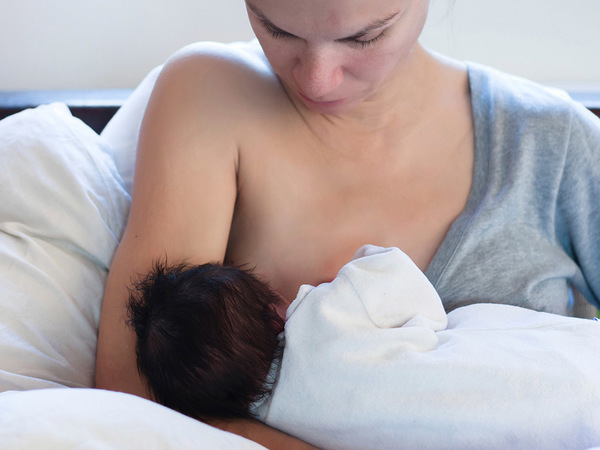Mastitis commonly affects breastfeeding women (lactation mastitis) but it can also happen to non-breastfeeding women and men. What is mastitis? Mastitis is a breast inflammation normally caused by infection and usually happens during the first 6 months of breastfeeding. But don't fret, you can continue to nurse your baby as it won't harm your baby and in fact, breastfeeding usually helps to clear up the infection.
Symptoms of Mastitis
Signs and symptoms of mastitis can appear out of the blue. They may include the followings:
- Breast swelling
- Breast tenderness or warmth to the touch
- Thickening of breast tissue, or a breast lump
- Skin redness (often in a wedge-shaped pattern)
- Feeling ill generally
- High fever (38.3°C or greater)
Causes of Mastitis
Trapped milk in the breast is the main cause of mastitis. But there are other causes too:
- A blocked milk duct. If a breast is not completely drained during feedings, one of your milk ducts can become clogged. It then causes milk to back up which could lead to breast infection.
- Bacteria enter your breasts. Bacteria from your skin's surface and baby's mouth can enter the milk ducts through a cracked or sore nipple or through a milk duct opening. The still milk in a breast that isn't cleared serves as a breeding ground for bacteria.
How to Prevent Mastitis
Consider taking the following steps to help prevent mastitis:
- Breastfeed regularly. Routine nursing prevents bacteria from building up. If you know you will go more than 4 hours without breastfeeding be sure to pump your milk out.
- Drink fluids aplenty while breastfeeding. It can help keep you hydrated.
- Ensure your baby latches on properly during feedings.
- Use different nursing positions as they can help drain all areas of your breast.
- Alternate which breast you offer first.
- Allow your baby to completely empty one breast before switching to the other breast.
- Wear a nursing bra that isn't too tight or restrictive.
- Take care of your nipples.
If the issue persists, consult your doctor or get help from a lactation consultant.
















